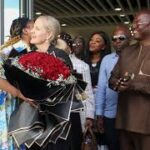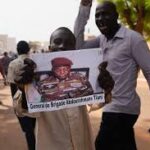The Democratic Republic of the Congo (DRC) has long been burdened by conflict, with a history of numerous armed confrontations, political instability, and humanitarian crises. In recent years, however, a significant shift has been occurring on the ground, marked by the emergence of mediation teams and peaceful conflict resolution mechanisms spearheaded by various African blocs. These initiatives not only aim to bring stability to the DRC but also offer a unique approach to healing the wounds inflicted by decades of violence.
In response to the persistent challenges posed by armed groups, international stakeholders—including the African Union (AU) and the Southern African Development Community (SADC)—have recognized the need for more holistic, community-based solutions. One of the innovative strategies has been the establishment and expansion of meditation teams, which integrate traditional conflict resolution methods and mental wellness practices into peacebuilding efforts.
Meditation, mindfulness, and dialogue have become essential tools in facilitating discussions between conflicting parties. African blocs have drawn upon indigenous practices, leveraging their cultural significance to create a sense of ownership among local communities. This approach emphasizes the importance of empathy, understanding, and cooperation, moving beyond the often adversarial nature of traditional negotiations.
Research indicates that such practices can play a pivotal role in reducing tensions and fostering lasting peace. A 2021 study published in the Journal of Conflict Resolution found that communities that engaged in peace circles and conflict resolution workshops reported a significant decrease in hostile interactions. These peace circles allow participants to voice their grievances in a safe space, helping to break the cycle of violence and mistrust.
The United Nations has also recognized the transformative potential of these initiatives. In collaboration with local NGOs, the UN has endorsed programs promoting meditation and community dialogue as effective tools for rebuilding social cohesion. Notably, the UN Stabilization Mission in the Democratic Republic of the Congo (MONUSCO) has integrated these practices into its operations, leading to improved relations between peacekeepers and local populations.
The success of mediation teams can be attributed not only to their emphasis on emotional healing but also to their inclusive nature. Representation from various community factions ensures that voices from all sides are heard, fostering a sense of unity. For example, women’s groups have been instrumental in facilitating dialogue, as they often bear the brunt of conflict and possess unique insights into its resolution. Their involvement has catalyzed broader participation and engagement in peace processes across the region.
Furthermore, the expansion of such initiatives aligns with the broader goals of regional stability outlined by the African Union’s Agenda 2063, which emphasizes peace, security, and the promotion of African cultural values. The rise of mediation teams is, therefore, not only a reaction to immediate conflicts but also part of a long-term vision for a prosperous African continent.
Despite the complexities of the DRC’s socio-political landscape, the initiative to incorporate meditation and conflict resolution practices into peacebuilding signifies a turning point. African blocs are forging pathways to self-determination, where communities are empowered to seek their own solutions. These efforts are not merely a response to violence but a proactive approach to fostering resilience and harmony in societies that have endured painful histories.
In conclusion, as the DRC continues to navigate its turbulent waters, the expansion of meditation teams represents a beacon of hope. It highlights the power of non-violent communication and the healing potential ingrained in African traditions. By embracing these innovative approaches, African blocs are not only addressing immediate conflicts but are also laying the foundations for a more peaceful and united future for the DRC and the continent as a whole.
Email Us on editorial@nnafrica.com













